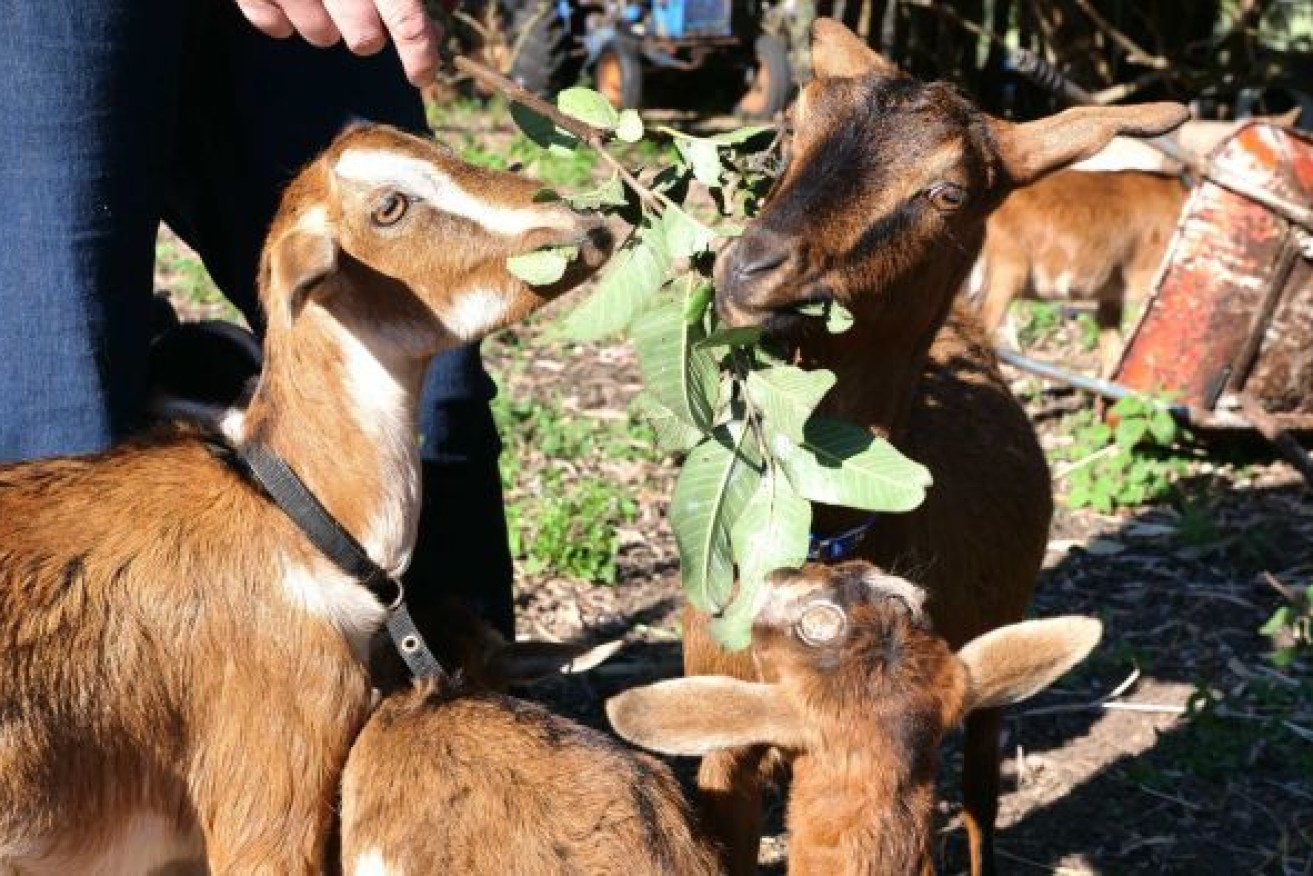After 150 years, goat colony is recognised as part of Aussie heritage
On a remote island on the Great Barrier Reef, a herd of goats has thrived for more than a century but, despite now being granted heritage-breed status, they may still be at risk on their island home.

The unique goats now have their own rare heritage-breed status, but that may not save them in a national park. (Photo: ABC)
Twelve goats were left on Middle Percy Island, southeast of Mackay in north Queensland, by Commander Bedwell of the schooner Pearl in 1874 during a mapping expedition, as a food source for future potential shipwrecked sailors.
When the island was formally declared a national park in 2011, local goat lovers feared the goats would be culled into extinction as a feral pest and petitioned for the breed to be named a rare Australian heritage breed.
They won.
Protecting the goats
Cate Radclyffe first arrived on Percy Island to visit her cousin and longstanding resident of the island, Andrew Martin, in 1985 from the United Kingdom.
“I just loved the place,” Radclyffe said.
“I went back to England to do a course on how to be a park ranger, came back, and was blessed with citizenship.
“[And I] have been able to live on the island for the past 12 years.”
In her time on the island, Radclyffe has become an advocate for the goats, arguing they should be recognised as an important part of Australia’s colonial history.
“I was very conscious [while training in England] that a lot of animals we consider to be English actually come from other countries,” Radclyffe said.
“They’ve been accepted as part of the British culture, and I realised that these goats are part of that category.”
For more than a century, the goats on the island have been used for their meat, skins, milk and to pull billy-carts, and are still eaten by locals and cruising yacht sailors that pass by.
Despite goats not being native to the region, Radclyffe believed the current management was sufficient to protect the environment.
“Because there are residents living on the island all the time, the numbers can be controlled, so therefore they don’t become overpopulated and cause erosion problems,” Radclyffe said.
Rare heritage breed
Mackay local Karen Mason has built a small herd of Percy Island goats since learning about the unusual breed on social media.
When she heard of the plight of the goats, she knew she had to get involved.
“We finally got on to the right person who was interested at the right time, and it just snowballed from there,” Mason said.
As an official heritage breed, the goats will now need to be DNA tested, their genetic features identified, and the breed promoted for future use.
The women were hopeful that the official rare breed heritage status would protect the goats and their genetics into the future.
“It’s history. [The goats] are something we’ll never get back if [they’re] lost,” Mason said.
The future of goats on Percy Island
But the future for the goats located on the island remains uncertain.
A spokesperson from the Department of Environment and Science rejected the claims that a heritage listing would grant the goats safety.
“Goats, regardless of the breed, are not native to Australia and in Queensland are declared restricted invasive animals under the Biosecurity Act 2014,” they said.
“The Queensland Parks and Wildlife Service assesses the threats and values that exist in each national park and use this to determine management priorities.”
But Radclyffe saw another way the goats could continue to flourish on the island.
“I’m really hoping that the authorities will stop calling the island a national park, which means they won’t have to eradicate the goats,” Radclyffe said.
“When you think that none of us [descendants of early settlers] are native, where do you draw the line?”
– ABC / Melanie Groves












